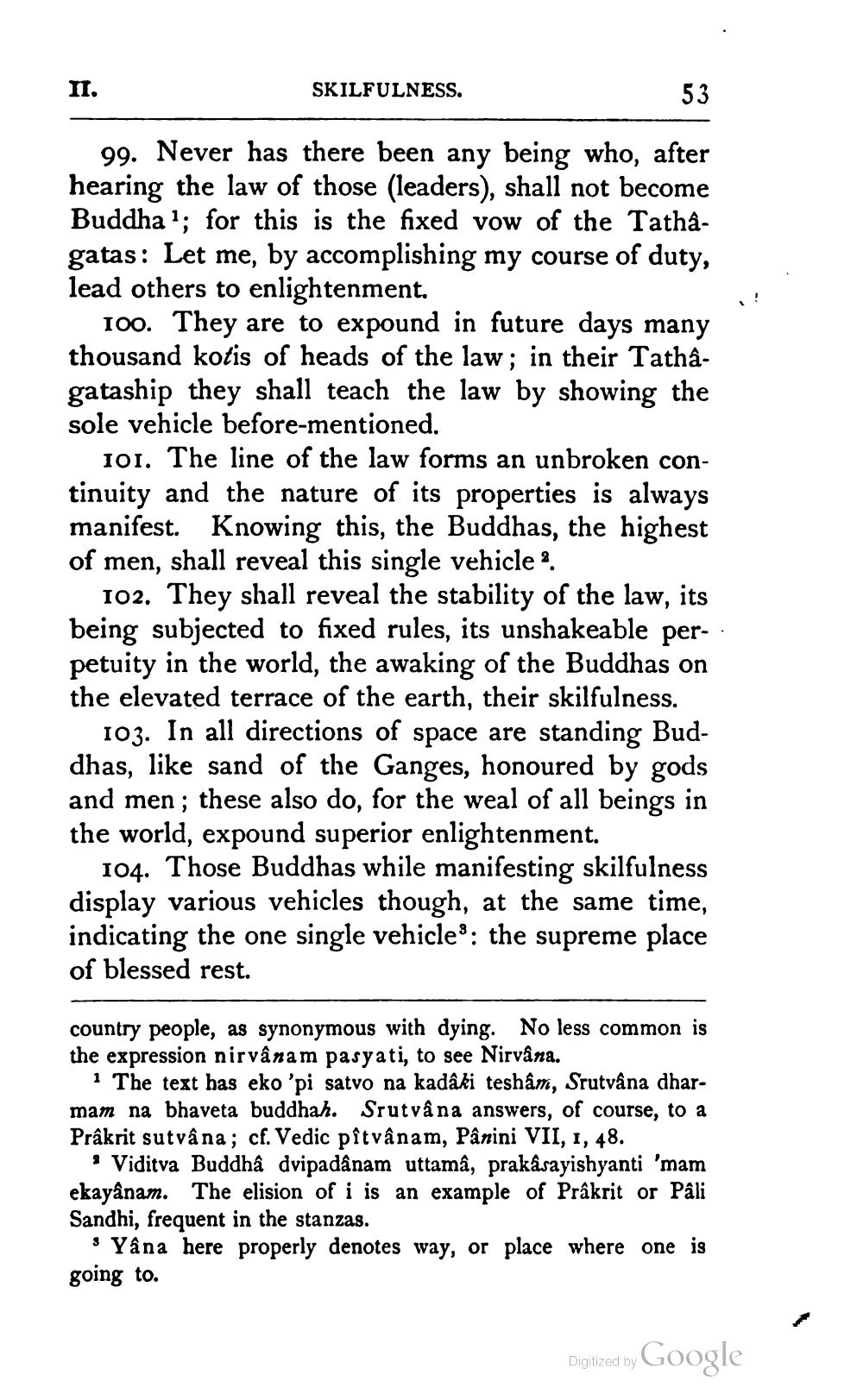________________
II.
SKILFULNESS.
99. Never has there been any being who, after hearing the law of those (leaders), shall not become Buddha l; for this is the fixed vow of the Tathagatas: Let me, by accomplishing my course of duty, lead others to enlightenment.
100. They are to expound in future days many thousand kotis of heads of the law; in their Tathagataship they shall teach the law by showing the sole vehicle before-mentioned.
101. The line of the law forms an unbroken continuity and the nature of its properties is always manifest. Knowing this, the Buddhas, the highest of men, shall reveal this single vehicle .
102. They shall reveal the stability of the law, its being subjected to fixed rules, its unshakeable perpetuity in the world, the awaking of the Buddhas on the elevated terrace of the earth, their skilfulness.
103. In all directions of space are standing Buddhas, like sand of the Ganges, honoured by gods and men ; these also do, for the weal of all beings in the world, expound superior enlightenment.
104. Those Buddhas while manifesting skilfulness display various vehicles though, at the same time, indicating the one single vehicle': the supreme place of blessed rest.
country people, as synonymous with dying. No less common is the expression nirvânam pasyati, to see Nirvana.
1 The text has eko 'pi satvo na kadaki tesham, Srutvâna dharmam na bhaveta buddhah. Srutvâna answers, of course, to a Prâkrit sutvâna; cf. Vedic pîtvânam, Pânini VII, 1, 48.
? Viditva Buddha dvipadânam uttamâ, prakásayishyanti 'mam ekayânam. The elision of i is an example of Prakrit or Pâli Sandhi, frequent in the stanzas.
Yâna here properly denotes way, or place where one is going to.
Digitized by Google




